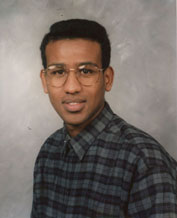
Opening Statement
Director's Corner
Originally published by Mediator's Report (NAFC).
The mediator's opening statement "sets the stage" for all that is to follow. For the participants to start with a clear picture of the mediator's role, I always prefer to be clear about what it is that I can and, more importantly cannot do in assisting the parties. Most people who have never been through the mediation process either have no idea what to expect or are misinformed based upon their own thoughts on what I should be doing.
I always start by introducing myself, and stating any qualifications I feel may benefit that session. If you are certified, if you specialize in a specific field that may be beneficial to that particular case, tell the parties. Also disclose any possible or conceived conflict of interest, and be clear that you feel your ability to be impartial is not jeopardized. For instance, if you have a business owner in a session, and you have frequented that business, you should state that although you may patronize the party as a customer, you do not feel it will affect the way you will conduct the mediation. If you do feel that you cannot be impartial, you should excuse yourself at that time.
I like to tell particpants that I am not present to act as a lawyer or judge. I will not be imposing a decision, or making determinations of fault. I am present to allow the parties to reach a mutual and voluntary agreement.
Depending on what rules you are obligated to abide by in your area, you should also talk about:
- Confidentiality: What is considered confidential? What information are you required to release to an outside source (i.e., a judge)? How can information be released otherwise?
- Notes: Are your notes retained for future reference? Are they destroyed? Are they available for review by the parties? By an outside source? Are the parties encouraged to take notes if they wish?
- Reports and Agreements: What are you required to provide as far as documentation of the outcome of each session? Who will receive this information? If the parties reach an agreement, who is responsible for writing and executing said agreement?
- Caucus: What is a caucus? What is the likelihood that a caucus will be called during the session? Will all parties be allowed to address the mediator equally in a private setting? Where should the party leaving the mediation go to wait?
- Ground rules: I have a few rules that are basic when it comes to behavior (sic). No interrupting. No profanity. No outbursts of anger. No threats.
As you can see, what I try to do is answer the questionsthey may have before we begin. At the end of my opening statement, I will ask them again if they have any questions before we start discussing the dispute.
The one thing I love about the opening statement is that it can be a very individual expression of how you want to be perceived. I have never seen an opening statement delivered the same way by any two people, and I am constantly chaning and perfecting mine to suit me or the type of mediation I may be conducting at any given time. On the other hand, it cannot be stressed enough that a complete opening statement can alleviate both any fear on the part of the parties, and can allow everyone to focus more fully upon what you are there to do - get the problem resolved before it goes any further.